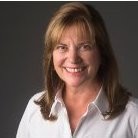She graduated that year from the Stanford Distinguished Careers Institute, operated in partnership with the Stanford Center on Longevity. Each academic year 25 fellows, who have had two or three decades of a successful career, are selected to attend the program and to enroll in classes across the university.

Read on The New York Times
Ms. Golden had been a partner in a venture capital firm that specialized in health care investments and took a break to care for her two daughters and aging mother. “For me, the program was an ideal way to restart my career,” she said. “It totally reset my clock, and I felt like I was in my 20s and 30s again.”
Rosabeth Moss Kanter, a Harvard Business School professor who is director of the leadership initiative, said the program was started “to deploy a new leadership force of people transitioning from their main career to their next years of service.”
Todd Fisher, 52, a fellow in Harvard’s program, was ready for a new challenge. He was a global chief administrative officer and partner of the private equity firm Kohlberg Kravis Roberts & Company and, he said, “I wanted to fundamentally shift my career.”
When Mr. Fisher turned 50, he heard about the program and started to make his plan. “I was nervous about finding my new career,” he said. “I’m the type of guy who wants to go get things done. I felt it would be valuable for me to be in a stimulating environment, where I had to develop different routines and to detox, or reprogram.”
In addition to the Stanford and Harvard programs, there are a handful of other educational programs for Gen Xers and baby boomers eyeing a second act.
Later this year, for example, the University of Notre Dame will start the Inspired Leadership Initiative, a one-year program for “accomplished leaders at the end of their careers.”
The University of Texas at Austin will also welcome later this year its first cadre for its nine-month Tower Fellows Program for those who “have built a career of major accomplishments (20 to 30 years) and who now seek to deepen their knowledge and/or embrace new fields.”
By Kerry Hannon
A version of this article appears in print in the New York edition with the headline: Starting Fresh Without Starting Over. Order Reprints | Today’s Paper | Subscribe




You must be logged in to post a comment.